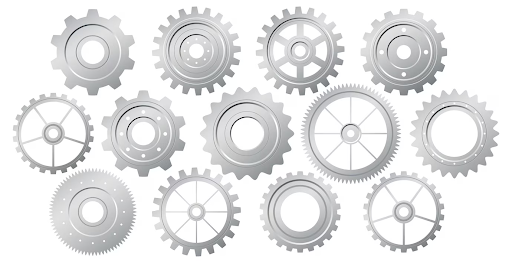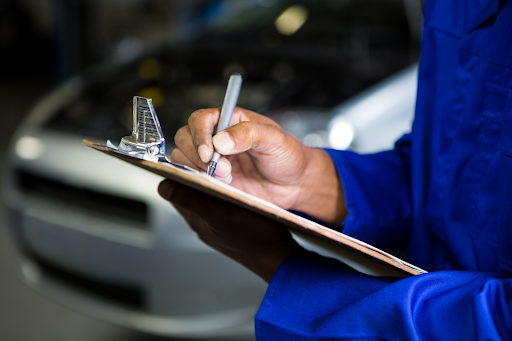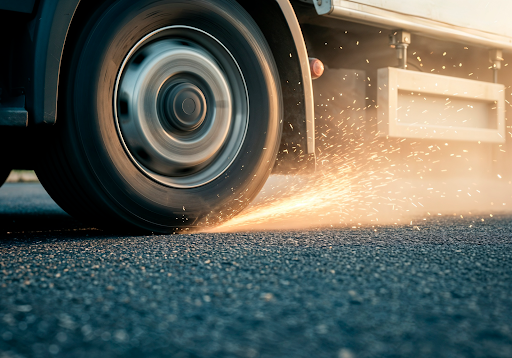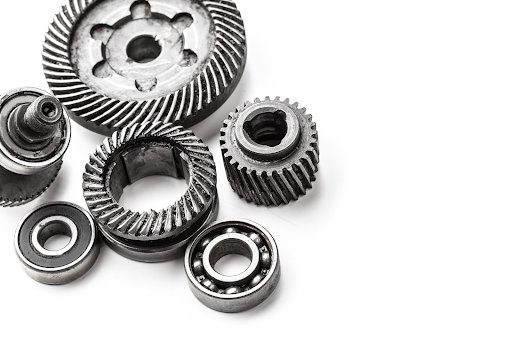Table of content
Common Issues with Crown Wheel and Pinion and How to Address Them
How the Crown Wheel and Pinion Work Together
Common Problems You Might Encounter
- Whining or Humming Noises
- Excessive Gear Wear
- Overheating of the Differential
- Gear Misalignment
- Broken or Damaged Teeth
Why Regular Maintenance Is Key
Need Help with Crown Wheel and Pinion Issues?
The crown wheel and pinion play a vital role in your vehicle’s differential system, helping to transmit power from the driveshaft to the wheels. Without them, your car wouldn’t be able to move efficiently or smoothly. But like all mechanical components, they can run into problems. If you’re noticing strange noises, poor performance, or other issues, it might be time to take a closer look at these gears. Let’s explore some of the most common problems with the crown wheel and pinion and what you can do to address them.
How the Crown Wheel and Pinion Work Together
To better understand the issues, it’s helpful to know how the crown wheel and pinion function. The pinion gear is connected to the driveshaft and meshes with the crown wheel gear, which, in turn, is linked to the differential. This setup allows your vehicle to transfer power to the wheels, enabling movement. However, because these parts are constantly in motion and under significant stress, they can wear out over time or suffer from other problems.
Common Problems You Might Encounter
1. Whining or Humming Noises
One of the most common signs that there’s an issue with your crown wheel and pinion is a whining or humming noise coming from the differential. This noise usually indicates that the gears are either worn out or not properly aligned. If the gears aren’t meshing perfectly, they can create a lot of friction, leading to that annoying sound.
Solution: If you hear these noises, it’s best to have a professional check the alignment of your gears. In some cases, simply adjusting the gears can solve the problem. However, if the gears are too worn, you might need to replace them entirely. Regular maintenance and ensuring the gears are correctly aligned can prevent this issue from cropping up in the first place.
2. Excessive Gear Wear
Over time, the crown wheel and pinion can wear down, especially if they aren’t properly lubricated or if the vehicle is used for heavy-duty tasks. Excessive wear can lead to poor performance, as the gears won’t be able to transmit power efficiently. You might notice a decrease in your vehicle’s acceleration or even experience difficulty turning.
Solution: The key to preventing excessive gear wear is proper lubrication. Make sure the differential oil is changed regularly and is of the correct type for your vehicle. If the gears are already worn, you’ll need to replace them. It’s also a good idea to check the oil for metal shavings, which can indicate severe wear inside the differential.
3. Overheating of the Differential
Another issue that can affect the crown wheel and pinion is the overheating of the differential. This can occur if the gears are not properly lubricated or if there’s too much friction between them. Overheating can cause the gears to warp, leading to poor performance and even total failure if left unchecked.
Solution: To address overheating, ensure that your differential is filled with the correct amount of oil and that the oil is not contaminated. It’s also important to use the right type of oil, as some oils are better suited for high-temperature conditions. If you notice your differential getting too hot, have it inspected by a professional to check for any underlying issues.
4. Gear Misalignment
Gear misalignment is another common problem with the crown wheel and pinion. This can happen if the gears are not installed correctly or if the differential housing becomes damaged. Misalignment can cause the gears to wear unevenly, leading to increased noise, poor performance, and ultimately, gear failure.
Solution: Correcting gear misalignment usually involves adjusting the gears within the differential housing. In some cases, you might need to replace the differential housing if it’s damaged. It’s important to address misalignment as soon as possible to avoid further damage to your vehicle.
5. Broken or Damaged Teeth
The teeth on the crown wheel and pinion gears are crucial for their proper operation. If these teeth become chipped, cracked, or broken, the gears won’t be able to mesh correctly. This can result in a range of problems, from noise to a complete breakdown of the differential.
Solution: The only practical remedy is to replace the gears if you find any cracked or damaged teeth. It is advisable to take care of the issue right away because driving with damaged gears can result in more serious problems. Frequent inspections can assist in identifying this problem before it worsens.
Why Regular Maintenance Is Key
Preventing issues with your crown wheel and pinion largely comes down to regular maintenance. Keeping your differential well-lubricated, checking for signs of wear, and addressing small problems before they become big ones can save you a lot of time, money, and headaches. If you’re unsure about how to maintain these components, consulting with a professional mechanic is always a good idea.
Need Help with Crown Wheel and Pinion Issues?
If you’re experiencing any of the issues mentioned above or want to ensure that your vehicle’s crown wheel and pinion are in top shape, it’s essential to get expert assistance. At TGP India, we specialize in high-quality transmission parts, including crown wheels and pinions. Our experienced team can help you diagnose any problems and provide the best solutions to keep your vehicle running smoothly.
Contact us today to learn more about our products and services. Whether you need a replacement part or advice on maintenance, TGP India has you covered. Don’t let small issues turn into big repairs—let us help you keep your vehicle in top condition!





